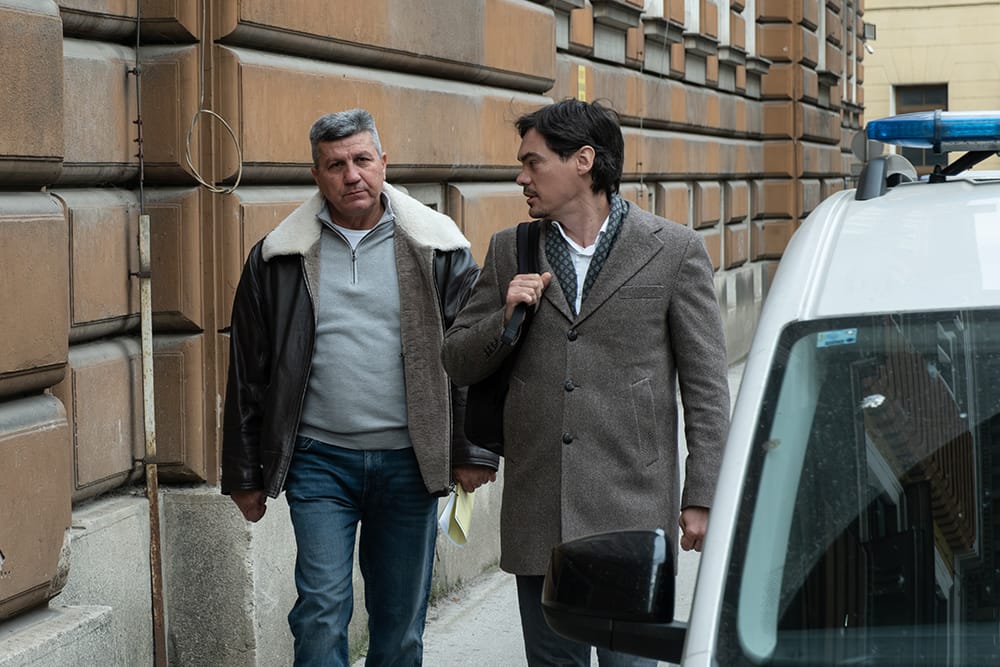“I am not guilty”, said Zoran Čegar, the former Head of the Uniformed Police Sector of the Federation Police Administration (FUP), as he pleaded before the Sarajevo Municipal Court on charges of document forgery.
The indictment was filed by the Canton Sarajevo Prosecutor’s Office in September 2024, and the date for the continuation of the trial will be determined at a later time.
Čegar’s lawyer requested that the trial be closed to the public due to his post-traumatic stress disorder (PTSD) and “low tolerance for journalists”, but the court rejected the request.
The indictment states that in January 2019, Čegar submitted a forged real estate sales contract to the Land Registry Office of the Sarajevo Municipal Court, along with two additional forged documents to the property, Geodetic Affairs, and Land Registry Service in the Municipality of Ilijaš.
According to the Prosecutor’s Office, police official Čegar used these documents in an attempt to register ownership of three parcels, totaling 20,450 square meters, in Nišići near Sarajevo, despite knowing that the sales contract, the notary public’s certificate, and the document authentication clause were falsified — and that they had not been issued by the notary in Loznica, Serbia, as stated on the documents.
The lead prosecutor has proposed that the court hear testimony from four witnesses, a criminology expert, and present over 30 pieces of material evidence during the main trial. They proposed the confiscation of the forged documents.
The case was uncovered by the Center for Investigative Journalism (CIN) in October 2022 and was featured in the story “The Double Life of Officer Čegar”. CIN reported that during his twenty years of service, Čegar acquired several houses, apartments, and land holdings in Bosnia and Herzegovina and Croatia. He also owned numerous cars, boats, and motorcycles. He also engaged in barter transactions, exchanging his own and others’ properties and vehicles without involving cash.
The properties in Nišići that are the subject of the indictment belonged to the Sarajevo company “Volving”, owned by Mehmedalija Žmirić who built two houses and a stable on approximately 20 dunums of land. In 2011, facing financial difficulties, he decided to sell the estate to Čegar.
According to Žmirić’s account to CIN reporters, they agreed on a price of 250,000 BAM for both houses, but Čegar only paid him 50,000 BAM.
According to the land records, the plots are the property of“Volving”, and the buildings are chartered in the cadastre maps.
Reporters found in court documents that in April 2019, Zoran Čegar tried to register this land in his own name, presenting a sales contract that he allegedly signed a year earlier with Radoje Ćetković, the former owner of the land. The document was signed and stamped by a public notary Gorica Milenković from Loznica in Serbia.
However, the court declined his request because it found that the owners are neither Ćetković nor Čegar, but Žmirić’s Volving. In addition, the presented contract being processed before a foreign notary was also unacceptable to the court.
After that, using the same contract he approached the Cadastre Office of the Municipality of Ilijaš, where he was registered as the owner.
CIN reporters sent a copy of this document and accompanying documentation to the notary office of Gorica Milenković in Loznica, and they forwarded them to the Public Notaries Chamber of Serbia for comment. Chamber spokeswoman Gordana Lazarević told CIN that the documents were not created in any notary office in Serbia. At the time indicated on one of the documents, notaries did not even exist in this country.
After being informed by the CIN story, the Municipality of Ilijaš carried out a verification process and, in accordance with the instructions from the Federation Geodetic Administration, issued a decision to restore the original status in the property register prior to the change. As a result, Zoran Čegar’s name was removed from the property register, and the name of the previous owner – from whom Žmirić had purchased the property in Nišići, was reinstated.
Following the publication of the CIN article, an investigation was launched, leading to an indictment for forgery. Čegar was suspended until September 2024, when he became eligible for retirement.







